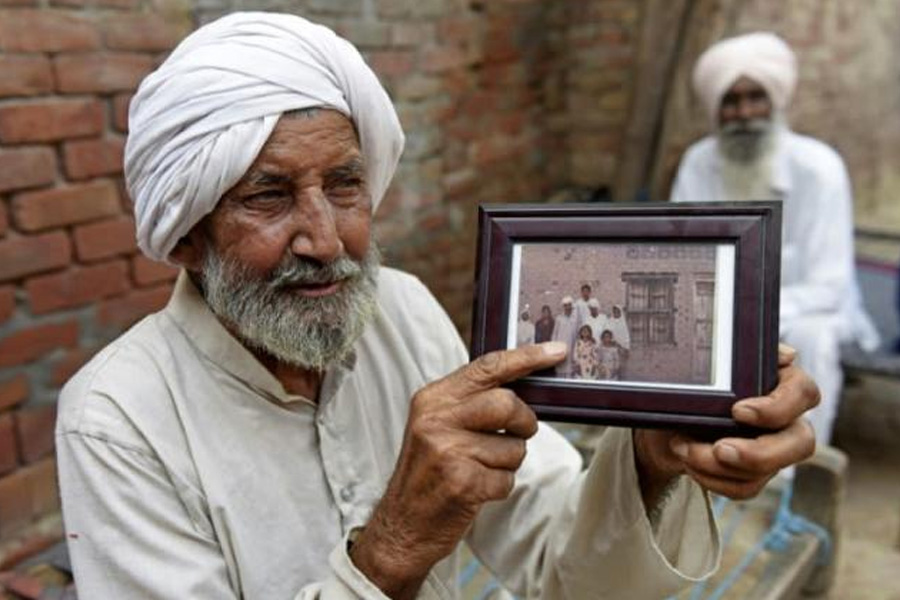BHATINDA, India (AFP) — Tears of joy rolled down his wizened cheeks when Indian Sika Khan met his Pakistani brother for the first time since being separated by Partition in 1947.
Sikh laborer Sika was just six months old when he and his elder brother Sadiq Khan were torn apart as Britain split the subcontinent at the end of colonial rule.
This year marks the 75th anniversary of Partition, during which sectarian bloodshed killed possibly more than one million people, families like Sika’s were cleaved apart and two independent nations
— Pakistan and India — were created.
Sika’s father and sister were killed in communal massacres, but Sadiq, just 10 years old, managed to flee to Pakistan.
“My mother could not bear the trauma and jumped into the river and killed herself,” Sika said at his simple brick house in Bhatinda, a district in the western Indian state of Punjab, which bore the brunt of Partition violence.
“I was left at the mercy of villagers and some relatives who brought me up.”
Ever since he was a child, Sika yearned to find out about his brother, the only surviving member of his family. But he failed to make headway until a doctor in the neighborhood offered to help three years ago.
After numerous phone calls and the assistance of Pakistani YouTuber Nasir Dhillon, Sika was able to be reunited with Sadiq.
The brothers finally met in January at Kartarpur corridor, a rare, visa-free crossing that allows Indian Sikh pilgrims to visit a temple in Pakistan.
The corridor, which opened in 2019, has become a symbol of unity and reconciliation for separated families, despite the lingering hostilities between the two nations.
